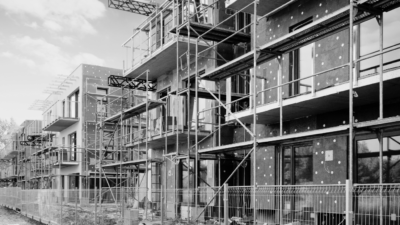As the UK starts to head out of lockdown a new report in the Times claims that Chancellor Rishi Sunak will be announcing that the stamp duty holiday will run until the end of June when he unveils his budget plans next week.
The stamp duty holiday was due to end on March 31st and allows people to save up to £15,000 in tax and the Chancellor has been urged to extend the deadline as House-buyers have been frantically pushing sales through before the end of next month.
Rightmove has commented that if an extension was not granted around 100,000 property buyers could miss out on the saving as a result of delays caused by a the number of transaction trying to be pushed through before the March 31st deadline.
The online property portal also said that an extension could save buyers around £1.75bn in duty, allowing another 300,000 transactions to complete within the extended holiday period.
Under the scheme, the stamp duty threshold is raised from £125,000 to £500,000 for properties in England and Northern Ireland and increased to £250,000 in Scotland and Wales.
The Centre for Policy Studies has stated that house sales are at their highest level since 2007 following the boost to the housing market from the scheme.
ONS reported, house prices had risen 8.5% last year in a market rebound, however sales appeared to be weakening this year in the expectation of the end of the stamp duty relief.
Matt Harper-Penman, Group Director of Fabrik Property Group commented:
“The Stamp Duty holiday extension is excellent news, for a number of reasons.”
“The first is very simple: it keeps our residential property market moving and supports the people who rely upon that market for an income to keep their jobs, allowing them to put food on the table for their families.”
“There are also a tremendous number of transactions that are going through conveyance right now, with around 100,000 buyers (according to Rightmove) stuck in a backlog through no fault of their own, who were trying to desperately meet the March 31st deadline.”
“If the extension had not been approved, we were likely to see people missing the deadline who then couldn’t afford to buy in normal circumstances. This would have meant they would either have to default on their purchase and lose fees or exchange and face penalties for non-payment of SDLT.”
“This would have caused some serious unrest.”
“Estate agents and solicitors had flagged this as a real issue, as activity levels are through the roof, but there are fewer staff to process the transactions, due to furlough.”
“It’s great to see that the government has recognised this and responded positively to the situation.”
“The impact of the extension will ultimately be good for the economy, as it will keep the property market moving and encourage more spending from the public.”
“Especially from those who wouldn’t usually be able to afford to move if the normal SDLT was in place.”
“This will mean property sector companies will benefit and will be in a stronger position to retain staff and potentially even look at employing more.”
“It will also allow people that are stuck in the backlog to complete with the original intended benefit of no SDLT to pay.”
“There is also a benefit from a macroeconomic point of view.”
“Where there is no tax for a period of time, it will encourage free market conditions, where someone will pay what they think something is worth; and on the flip side someone will sell for what they think something is worth. It’s a fair deal for both sides.”
“Having said that, tax is important and if the government spend and invest it wisely in the right areas, such as the NHS, public transport links, highways and infrastructure, that will help the business community too.”

























Comments